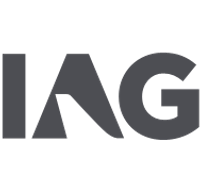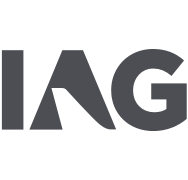
International Consolidated Airlines Group SA
LSE:IAG

Intrinsic Value
The intrinsic value of one
 IAG
stock under the Base Case scenario is
1 187.32
GBX.
Compared to the current market price of 248.9 GBX,
International Consolidated Airlines Group SA
is
Undervalued by 79%.
IAG
stock under the Base Case scenario is
1 187.32
GBX.
Compared to the current market price of 248.9 GBX,
International Consolidated Airlines Group SA
is
Undervalued by 79%.
The Intrinsic Value is calculated as the average of DCF and Relative values:

Valuation History
International Consolidated Airlines Group SA

Fundamental Analysis


Revenue & Expenses Breakdown
International Consolidated Airlines Group SA

Balance Sheet Decomposition
International Consolidated Airlines Group SA

| Current Assets | 15.2B |
| Cash & Short-Term Investments | 6.8B |
| Receivables | 2.6B |
| Other Current Assets | 5.7B |
| Non-Current Assets | 28.6B |
| Long-Term Investments | 234m |
| PP&E | 21.1B |
| Intangibles | 3.6B |
| Other Non-Current Assets | 3.6B |
Free Cash Flow Analysis
International Consolidated Airlines Group SA

| EUR | |
| Free Cash Flow | EUR |
Earnings Waterfall
International Consolidated Airlines Group SA

|
Revenue
|
32.1B
EUR
|
|
Cost of Revenue
|
-10.3B
EUR
|
|
Gross Profit
|
21.8B
EUR
|
|
Operating Expenses
|
-17.5B
EUR
|
|
Operating Income
|
4.3B
EUR
|
|
Other Expenses
|
-1.6B
EUR
|
|
Net Income
|
2.7B
EUR
|
IAG Profitability Score
Profitability Due Diligence

International Consolidated Airlines Group SA's profitability score is 64/100. The higher the profitability score, the more profitable the company is.

Score
International Consolidated Airlines Group SA's profitability score is 64/100. The higher the profitability score, the more profitable the company is.
IAG Solvency Score
Solvency Due Diligence

International Consolidated Airlines Group SA's solvency score is 34/100. The higher the solvency score, the more solvent the company is.

Score
International Consolidated Airlines Group SA's solvency score is 34/100. The higher the solvency score, the more solvent the company is.
Wall St
Price Targets
IAG Price Targets Summary
International Consolidated Airlines Group SA

According to Wall Street analysts, the average 1-year price target for
 IAG
is 398.1 GBX
with a low forecast of 171.7 GBX and a high forecast of 525 GBX.
IAG
is 398.1 GBX
with a low forecast of 171.7 GBX and a high forecast of 525 GBX.
Dividends
Current shareholder yield for  IAG is
.
IAG is
.
Shareholder yield represents the total return a company provides to its shareholders, calculated as the sum of dividend yield, buyback yield, and debt paydown yield. What is shareholder yield?
The intrinsic value of one
 IAG
stock under the Base Case scenario is
1 187.32
GBX.
IAG
stock under the Base Case scenario is
1 187.32
GBX.
Compared to the current market price of 248.9 GBX,
 International Consolidated Airlines Group SA
is
Undervalued by 79%.
International Consolidated Airlines Group SA
is
Undervalued by 79%.

























































 You don't have any saved screeners yet
You don't have any saved screeners yet